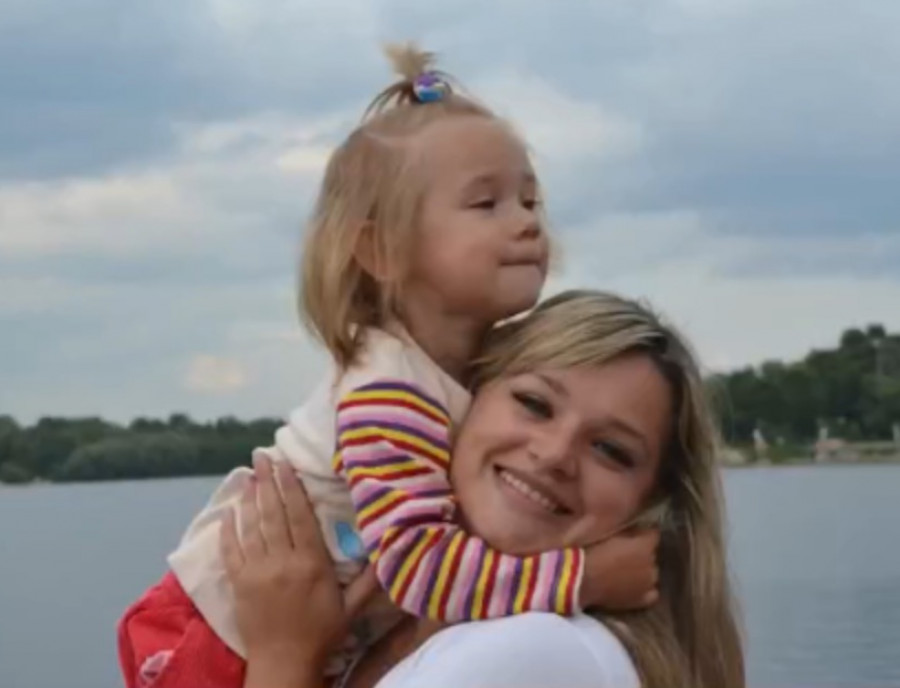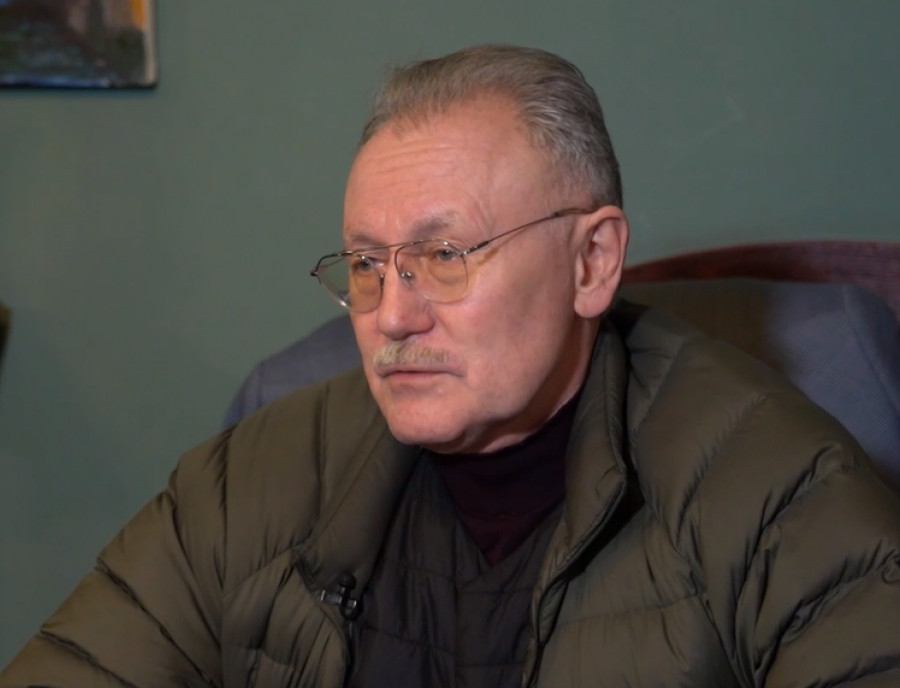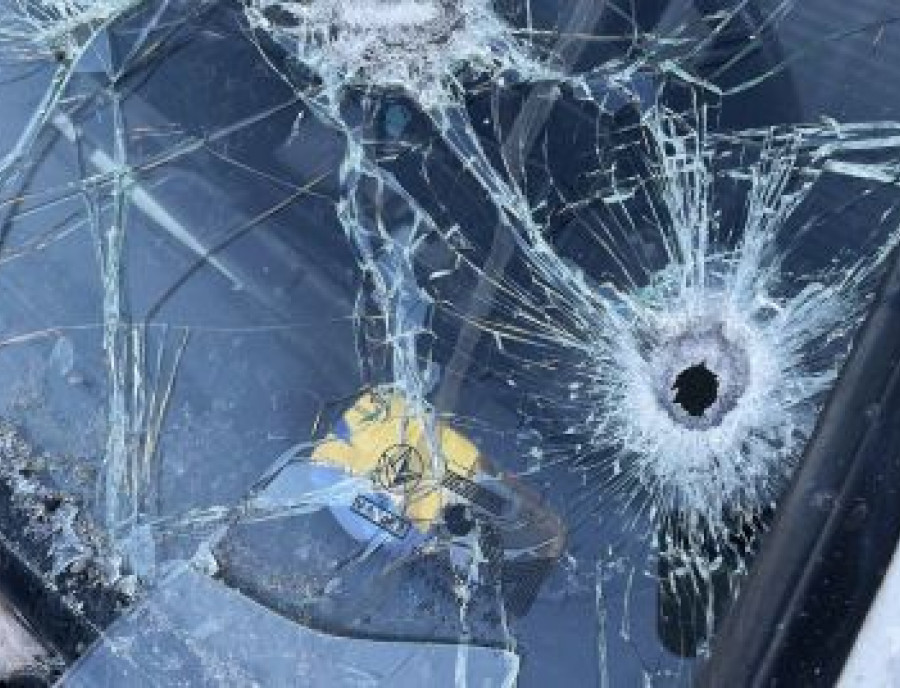Their duty trip lasted 31 days in a row. All this time, the train master Andriy Kostin and his supervisor evacuated Ukrainian civilians from shelling without any breaks. They saved 40,000 women, children, and the elderly.
Well, we already had some kind of assumptions and guessed that something was going to be wrong, as so many russian troops were near the border, but, as all normal people, we nevertheless did not believe that all this would happen. On 22 February, my train crew and I left the capital by Kyiv-Berdiansk train. That was our train route. We came to Berdiansk on 23 February and the weather was beautiful there.
We finished all our work tasks and almost the entire team, those who wished so, went to the sea and breathed some fresh air there.
Then, later in the evening, we boarded the train again and left for Kyiv. We went back to Kyiv. On the morning of 24 February, my wife called me and said that the war began, that Boryspil was bombed and everything else. We had not yet reached Kyiv by then. By that time, we were somewhere near Znamyanka station. It was at around 5 o’clock in the morning. That’s when we learned about it. We came back to Kyiv on 24 February. We finished all our work on 24 February and I also managed to call in home.
Sorry for the detail, but I took a change of underwear. I expected that this might happen one day. By the way, on 24 February, I saw my wife and daughter last time, as they have been staying abroad for more than six months now. On 24 February, we headed off on our next duty trip but not to Berdiansk anymore because that area was already shelled all over. We left Kyiv and went to Lviv. From Lviv, without going back to Kyiv, we went to Zaporizhzhia specifically for the evacuation of civilians
Naturally, at that time, all passengers, everyone was travelling without train tickets. The only mission was to take people out.
Zaporizhzhia then... When we came there, the first evacuation started and it was a terrible shock for us too. There were so many passengers that... For example, about 120-140 passengers were travelling in a train carriage having 36 seats normally, a compartment car. Third-class sleeper with 54 seats had 200-220 people inside. Most of the passengers were... There were some elderly people but mostly the passengers were mothers with children. So we then were going back from Zaporizhzhia. When going to Berdiansk, we had 10 carriages, but now we already had 20, as our train took on 10 more carriages. We also had another nice train no.11, Kyiv-Novooleksiivka. For obvious reasons, this train did not go there anymore.
So we had this hitched train and I, together with another train master, was in charge of this train no. 11 Kyiv-Novooleksiivka. From Zaporizhzhia this train, brim-full of passengers, went to Lviv.
Well, I can hardly describe what was happening there. We gave them everything that we could, even all our service compartments meant for train staff. I even let some passengers into my train master’s compartment where we keep our documents. I just asked the kids, “Please, don’t touch anything here.”
There was a radio and some other stuff there. My colleagues, passenger car attendants, and I myself, spent the night in the vestibule and stayed there all the way. Although the weather was generally fine, it was still a bit chilly. This is how we got to Lviv. I remember that while on the way, we were all the time asked about the approximate number of passengers our train was carrying. Well, normally, 20 passenger carriages have about 600 seats in total, while we brought three and a half thousand people to Lviv then. After that, without going to Kyiv again, our train returned from Lviv to Zaporizhzhia empty. During this return trip, we put the carriages and everything else in order.
Well, by and large, volunteering activities were not yet so active, but then, with the next trip to Zaporizhzhia, it intensified. In Zaporizhzhia, it was more or less… Well, the situation was well managed there. They did not let all the passengers go out to the platform, as the case had been with the first trip when a terrible panic arose. The police and the territorial defence forces kept everyone inside the station and let people out gradually, by 100-200 passengers, escorting them to each carriage. Now it was better organized and better managed.
Our work shift started on 22 February, before the war, and then we were replaced on 23 March. We were on the duty trip precisely 31 days and were not rotated in any of the destinations.
Well, sometimes we stayed in Zaporizhzhia or Dnipro for a day and then we set off again. Basically, we did about 10 trips. If the average was about three and a half thousand passengers, while in fact, it was more, well, we then transported a total of up to 40,000 passengers, for sure. We started travelling from Zaporizhzhia to Lviv, then from Zaporizhzhia to Ivano-Frankivsk, Zaporizhzhia-Chop, and Zaporizhzhia-Chernivtsi. Once we had 24 carriages – our train had 20 and 4 more carriages from Dnipro railway were hitched to us.
A train of those 24 carriages came to Chelm in Poland. We did not have any [travel] documents with us, only our work IDs. Poles did a great job. Lord, I just extend our deepest respect. They are a great nation. They received us there very well, all the passengers. They organized everything for that. They met our passengers from every carriage and their volunteers escorted them to the railway station, where they fed them and explained how to get to their destinations. They even ordered them tickets. And it was the same [attitude] while on the way, when we were going to Chelm. At every station...
At every station, people just ran up to the train. When we stopped near some village... I remember one particular case that etched in my memory. Well, our train stopped, I opened the door and saw that we were near some village. That was after we passed Kovel and on the way to Yahotyn. It was one-hour long trip to go there but we were on the road for two days then, as similar evacuation trains were coming from all over Ukraine.
We saw a girl running. Her legs were [slim?] like this, you know. She carried two bottles of water in a bag and brought them up to the train. People brought us food from all directions.
They brought us so much water that it was just stunning. Well, it was always dangerous there, I would say. As soon as we went on our first trips, once we headed off, let’s say to Zaporizhzhia, we immediately covered all the windows, lowered the curtains and turned off the lights. Only the night lighting was on, as well as the lighting in the toilets and vestibules. We also covered the glass in the vestibule doors. We had some black plastic bags and we covered all the windows with them, so that no lights could be seen. There was a complete blackout.
Well, the worst thing was, for instance, in Pyatykhatky, as far as I remember. We approached the station and the train driver stopped the train and told me over the radio, “Turn everything off”. He himself turned everything off too, as there was a threat of an air strike. So we were staying there and could see how from afar, apparently, either Grad MLRS, or something like that, [was firing]. It was quite far away but nonetheless, the train was almost hit. That was really terrible.
We got very tired physically during this month of travels but even more so we were mentally tired, watching how those poor old women, how those mothers travelled, how they worried, especially when kids were crying.
Many of them, who were evacuated with our train, went through those terrible bombing and shelling attacks and so on. They told us about such horrors that it was simply terrible to hear it. Yet, in spite of that, those mothers coped quite well. They tried to distract their children’s attention with something. We gave them some sheets of paper, A4 format. I always had some paper with me, as I need it for my work. They had some pencils or felt-tip pens with them. So their kids were busy with drawing. That was how they diverted their attention. By the way, I now have one of those children’s drawings at home. One kid drew it. The drawing showed a soldier with a flag. It said, “Glory to the Armed Forces of Ukraine” and so on. That was it.
The worst thing was to look at the passengers and realize that people were fleeing from their homes, from their beautiful places where they had lived and where everything used to be fine with them, and then this [horror] happened to them. That they had to run away in a matter of several days, to leave everything behind, and so on.
Well, I cannot remember exactly, but the situation began to stabilize slightly some time from 15-16 March on. After that, we did our last [evacuation] trips... We continued to evacuate passengers but now they were travelling in more comfortable conditions. Well, for example, there were still six or eight people in a passenger compartment of a carriage instead of four people, but at least nobody travelled in the hallways and in the vestibules. There was also another aspect that I will remember for the rest of my life. It was exactly when we made the very first trip from Zaporizhzhia. We were departing. We already left but, thank God, someone said, some mother came and said, “There are some two boys standing together in your second vestibule”. We hardly made our way there, to that vestibule. Two boys were standing there. As it turned out, one of them was seven years old and the other was five years old.
They were two brothers. They were holding each other by the hand. It so happened that they were taken to the next carriage and then they moved here, into this very vestibule. In fact, they had a bag with some food and everything else. Later, when I contacted the train driver, and when we contacted the police, and so on, we learned what actually happened. It turned out that the boy’s mother went to Lviv before the war. Yet, not exactly to Lviv but somewhere close, to visit someone. Well, and she left her children with her brother. However, men aged from 18 to 60 years old were not allowed to board the train. So her brother somehow managed to put those children on our train at the last moment, and then informed his wife. Oh, no, not his wife but his sister. Well, she then came here and thus we found out whose children they were.
Other mothers on the train did a great job. They took these boys immediately, even though the compartments were full. They took these two kids to them and calmed them down, as the little one was standing and crying.
And so, we took them to Lviv. Surely, their mother was extremely grateful. But thank God, everything worked out well that way. There are still some evacuation trains running now but there are no such trains going from Kyiv. There are trains only from that side, from Zaporizhzhia. Maybe, or not maybe, but for sure there are evacuation trains from Kharkiv. We send some of our carriages there. They go there to help, and they travel with our car attendants. There are still some evacuation trains there. Everything else has almost returned to normal. In particular, my crew and I now travel with Kyiv-Chelm train, train no. 23. It is a train going to Poland. The train is packed full all the time, whenever we go from here or return from there. People travel back from there.
Previously, our eyes welled up with tears without any control, when this evacuation was in progress and when people... Well, getting on the train was a terrible experience. Now we have tears when we see mothers and children returning from there, from Chelm, back here, and see their fathers meeting them on the platform with a bunch of flowers. I even had a case... There was one carriage hostess… I think it was during our latest trip... A dad was meeting his loved ones. Well, of course, with a bouquet of flowers for his wife, some toy for his baby, and a bunch of flowers for the train carriage hostess, with the words, “Thank you for giving them a ride, for bringing them back.”
When quoting a story, a reference to the source – the Museum of Civilian Voices of the Rinat Akhmetov Foundation – is mandatory, as follows:
The Museum of Civilian Voices of the Rinat Akhmetov Foundation https://civilvoicesmuseum.org/






